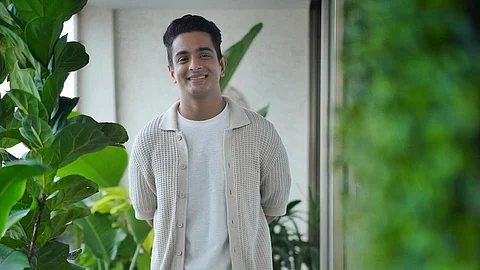

The Supreme Court on Monday, March 3, allowed podcaster Ranveer Allahbadia to resume airing The Ranveer Show, provided he ensures that his content maintains “morality and decency” and is suitable for all age groups. The court, while dismissing the prosecution’s plea to cancel his podcast, said that there must be a clear distinction between humour and perversity in online content.
The bench, led by Justice Surya Kant, was hearing Allahbadia’s application to modify a clause in its February 18 order, which had barred him from airing any shows while granting him interim protection from arrest. The court acknowledged Allahbadia’s argument that the restriction affected the livelihoods of his 280 employees but reminded him that fundamental rights are subject to reasonable restrictions. “Fundamental rights are not on a platter; there are certain restrictions,” the court observed.
Solicitor General Tushar Mehta, appearing for the Union, criticised Allahbadia’s controversial content, particularly his remarks on the show India’s Got Latent, which had led to multiple FIRs against him. “I saw the show out of curiosity, and it is not vulgar, but it is perverse. Humour is one thing, vulgarity is one thing, and perversity is another level,” Mehta told the court. He further suggested that Allahbadia should “remain silent for some time.”
The Supreme Court directed Allahbadia to provide an undertaking that his podcast would maintain “desired standards of morality and decency” so that viewers of all age groups could watch it. “As of now, petitioners were restrained from airing any shows. Subject to the petitioner furnishing an undertaking that his podcast shows will maintain the desired standards of morality and decency so that viewers of any age group can watch, the petitioner is permitted to resume The Ranveer Show,” the court said.
Allahbadia’s legal team, led by advocate Abhinav Chandrachud, argued that the restriction was disproportionately affecting his livelihood. “My client has no sense of humour, but this prohibition will affect his and 200-odd people’s livelihoods,” Chandrachud said. He also sought permission for Allahbadia to travel abroad, but the court said that request would only be considered after he joined the investigation.
Allahbadia is facing multiple FIRs in Maharashtra, Rajasthan, and Assam over his controversial comments on India’s Got Latent. The court had earlier noted that he had not appeared before Gauhati Police for questioning. Mehta pointed out that Allahbadia had not complied with summons, stating, “He has not joined the investigation.” Chandrachud countered that his client had contacted the investigating officer on WhatsApp to coordinate his appearance but received no response. The court directed the Gauhati Police to inform Allahbadia of the date and time of his questioning.
The Supreme Court also addressed regulating online content and preventing inappropriate material from being broadcast. The bench said that some regulatory framework might be necessary to ensure content adheres to society’s moral standards without infringing on free speech. “Any draft regulatory measure in this regard can then be put in public domain to invite suggestions from stakeholders before taking any legislative or judicial measure,” the court said.
While the court said that it does not support a system of censorship, it said that free speech is not absolute. “We are not in favour of a regulatory regime that leads to censorship, but it cannot be a free-for-all,” the bench observed. The Union was asked to draft a set of rules and guidelines for regulating online media content while ensuring that any restrictions do not violate Article 19(4) of the Constitution. “We want to reach out to the Union. See if you can draft something. All stakeholders can be invited, be brought in public domain. Let’s have a discussion,” the court said.